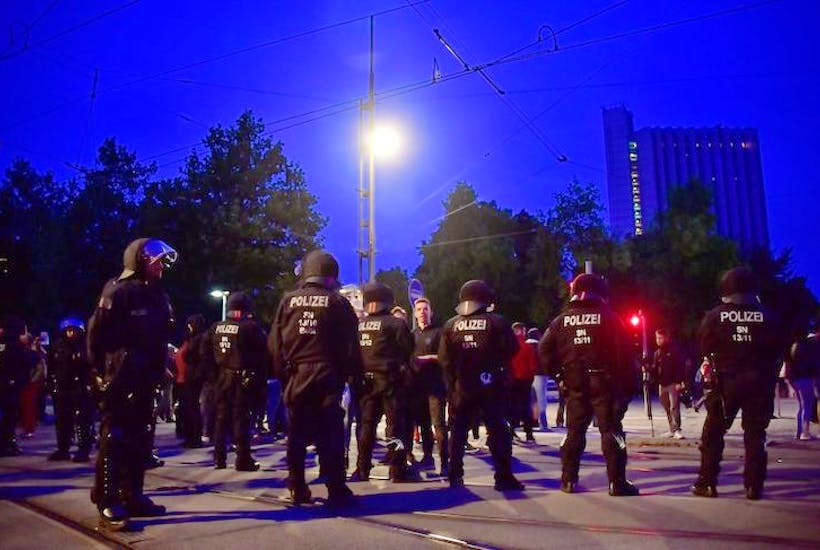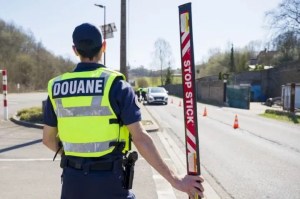Saxony is Germany’s most troublesome state. For the past four years, this former part of the communist east has been hit by riots, weekly protests and been a symbol of the stubborn economic gulf between the country’s east and west.
Now, a state election in the region on Sunday brings a fresh challenge for Angela Merkel, where her CDU party has spent the campaign jostling with the far-right AfD for the top position in the polls. Although the AfD have now fallen a few percentage points behind Merkel’s party, they are a real threat to the CDU, who have governed the region for 30 years.
As this year’s European election campaign segued into preparations for Sunday’s vote, a sweltering summer has been strained by the specter of violence in the state. In June a CDU politician and refugee advocate, Walter Lübcke, was murdered in the region of Hesse. Lübcke was found in his garden, shot in the head. In the aftermath of his murder, Saxony is following a new trend, where polarized political debate has tipped over into not just threats, but physical attacks.
Threats and death threats have become the new normal. ‘The phenomenon of threats is so widespread that the police lack the capacity to personally protect all local politicians that have received them,’ says Manès Weisskircher, political scientist at Dresden’s Technical University. Local politicians have reported death threats by phone and email. In June, a politician for Saxony’s Social Democratic Party received a package at his house which contained a replica assault rifle. And when Saxony’s election committee disqualified two-thirds of the AfD’s candidates in the region due to ‘irregularities’, it sparked a row which resulted in committee members needing police protection for their meetings.
These threats against politicians are certainly not hollow. In July, an explosive device shattered the windows of a left-wing councillor’s home, leaving its apparent target, Ramona Gehring, ‘deeply shocked’. It was ‘only chance that no one was injured’ the politician – who has since left politics – told the press.
The event was not unprecedented either. According to a Die Linke spokesperson, the month before, three people taking down Die Linke’s European election posters were attacked with bottles. And in May, a Die Linke councillor, Franziska Riekewald, was assaulted in Leipzig and called ‘a political whore’.
‘I think the climate of society has gotten kind of rougher these last years’ says Die Linke spokesperson, Tilman Loos, who says the rise of far-right groups is to blame. According to government statistics, Germany saw more than 36,000 politically motivated offenses in 2018, a slight drop from last year. While there were offenses committed by both sides of the political spectrum, the number of right-wing motivated crimes (19,409) far exceeded the number of left-wing motivated crimes (4,622).
Even so, the AfD in Saxony has also been a target. Earlier in August, AfD candidate Joachim Keiler was punched in the face as he campaigned in Dresden, although video evidence of the incident included some suspicious cuts. Multiple AfD candidates and representatives did not respond to requests for comment.
‘It is important to note that having such a hostile environment is not restricted to Saxony, or the east of Germany,’ reminds Weisskircher. ‘Throughout the country there has been an important debate about the safety of politicians, especially those active on the subnational level.’
But political violence is not just an issue constrained to Germany either. Recent European elections in the UK saw the phenomenon of milkshaking spark a debate about the abuse of political candidates. And this year’s local elections in Britain were the first time candidates could choose not to publish their home addresses on ballot papers. As online and offline threats barge their way into European political culture; perhaps it is inevitable that a rise in violence will be close behind.
This article was originally published on The Spectator‘s UK website.



















